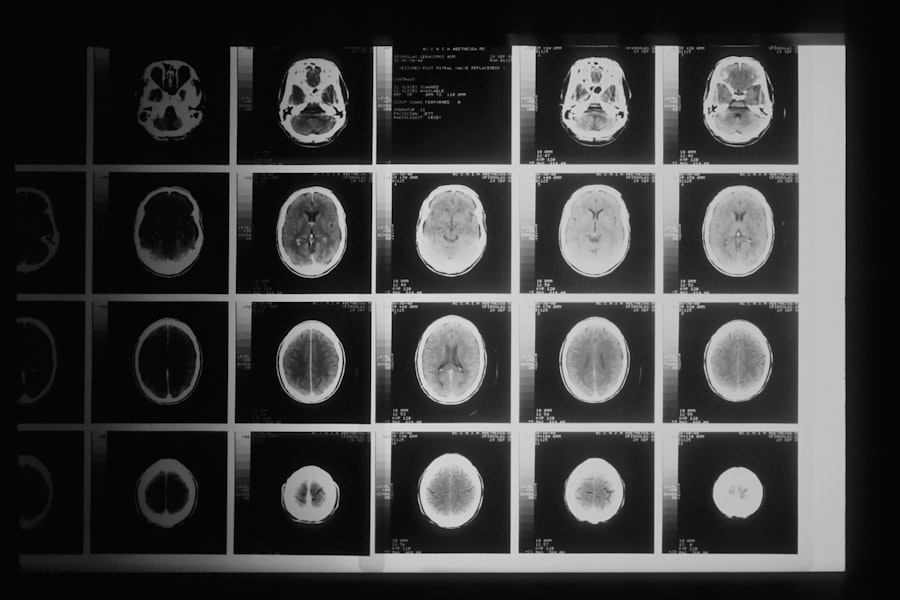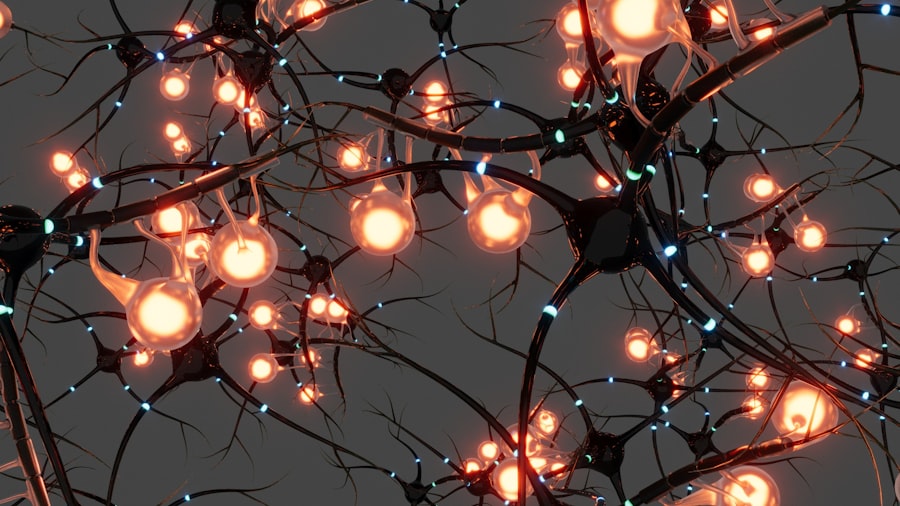As you embark on the journey of understanding your brain’s potential, it becomes clear that this remarkable organ is not just a control center for your body but also a powerhouse of creativity, problem-solving, and emotional regulation. The brain is capable of remarkable feats, from learning new languages to solving complex mathematical problems. It is essential to recognize that your brain’s potential is not fixed; rather, it can be developed and expanded throughout your life.
This neuroplasticity allows you to adapt, learn, and grow, regardless of age or background. You may find it fascinating to consider that every experience you have shapes your brain’s structure and function. Each time you learn something new or practice a skill, your brain forms new connections and strengthens existing ones.
By understanding the brain’s potential, you can harness its capabilities to improve your life in various ways, from enhancing your academic performance to fostering better relationships.
Key Takeaways
- The brain’s potential can be maximized through understanding its science and functions.
- Nutrition, sleep, and exercise play crucial roles in maintaining and enhancing brain health.
- Stress management, mindfulness, and meditation significantly improve brain performance.
- Techniques for boosting memory, creativity, and cognitive function are essential for brain optimization.
- Applying brain power effectively contributes to achieving success in various aspects of life.
The Science Behind Brain Power
Delving into the science behind brain power reveals a complex interplay of neurons, neurotransmitters, and electrical impulses that work together to create thoughts, emotions, and actions. Your brain consists of approximately 86 billion neurons, each connected by synapses that transmit signals. These connections are crucial for communication within the brain and between the brain and the rest of your body.
The efficiency of these connections can significantly impact your cognitive abilities. Neuroscience has made significant strides in understanding how different factors influence brain function. For instance, research has shown that certain neurotransmitters, such as dopamine and serotonin, play vital roles in mood regulation and cognitive performance.
By understanding these mechanisms, you can take proactive steps to enhance your brain power through lifestyle choices and mental exercises that promote optimal neurotransmitter balance.
Techniques for Enhancing Brain Function

To enhance your brain function effectively, you can employ a variety of techniques that stimulate cognitive growth and improve mental agility. One powerful method is engaging in lifelong learning. Whether through formal education, online courses, or self-directed study, continually challenging yourself with new information can help keep your mind sharp.
You might consider setting aside time each week to explore topics that interest you or even delve into subjects outside your comfort zone. Another effective technique is practicing cognitive exercises such as puzzles, memory games, or strategy-based activities. These exercises not only provide mental stimulation but also encourage the development of new neural pathways.
You may find that incorporating these activities into your daily routine can lead to noticeable improvements in focus and problem-solving skills. Additionally, social interactions can also enhance brain function; engaging in meaningful conversations and collaborative projects can stimulate your mind and foster creativity.
The Role of Nutrition in Brain Health
| Nutrition Component | Role in Brain Health | Key Benefits | Sources | Recommended Daily Intake |
|---|---|---|---|---|
| Omega-3 Fatty Acids | Supports neuronal structure and function | Improves memory, reduces inflammation, supports cognitive function | Fatty fish (salmon, mackerel), flaxseeds, walnuts | 250-500 mg EPA and DHA combined |
| Antioxidants (Vitamin C, E, Flavonoids) | Protects brain cells from oxidative stress | Reduces risk of neurodegenerative diseases, improves brain plasticity | Citrus fruits, nuts, berries, green tea | Vitamin C: 75-90 mg; Vitamin E: 15 mg |
| B Vitamins (B6, B9, B12) | Supports neurotransmitter synthesis and homocysteine metabolism | Enhances mood, reduces cognitive decline risk | Leafy greens, eggs, meat, legumes | B6: 1.3-1.7 mg; B9: 400 mcg; B12: 2.4 mcg |
| Choline | Essential for acetylcholine production and brain development | Improves memory and cognitive function | Eggs, liver, soybeans, fish | 425-550 mg |
| Polyphenols | Modulates brain signaling and reduces inflammation | Enhances learning and memory, neuroprotection | Dark chocolate, berries, coffee, tea | No established RDI; consume through varied diet |
| Magnesium | Supports synaptic function and neuroplasticity | Improves mood, reduces anxiety, supports memory | Nuts, seeds, whole grains, leafy greens | 310-420 mg |
Nutrition plays a pivotal role in maintaining optimal brain health and function. The foods you consume directly impact your cognitive abilities, mood, and overall well-being. A diet rich in antioxidants, healthy fats, vitamins, and minerals can support brain health by reducing inflammation and oxidative stress.
You might consider incorporating foods such as fatty fish, berries, nuts, and leafy greens into your meals to provide essential nutrients that promote cognitive function. Moreover, staying hydrated is equally important for maintaining brain health. Dehydration can lead to cognitive decline and impair concentration.
By ensuring you drink enough water throughout the day, you can help keep your brain functioning at its best. You may also want to be mindful of your caffeine intake; while moderate consumption can enhance alertness, excessive amounts can lead to anxiety and disrupt sleep patterns.
The Importance of Sleep for Brain Function
Sleep is often underestimated in its importance for optimal brain function. During sleep, your brain undergoes critical processes that consolidate memories, clear out toxins, and restore energy levels. You may have experienced firsthand how a lack of sleep affects your ability to concentrate or recall information.
Prioritizing quality sleep is essential for maintaining cognitive performance and emotional stability. To improve your sleep quality, consider establishing a consistent sleep schedule and creating a relaxing bedtime routine. Limiting screen time before bed and creating a comfortable sleep environment can also contribute to better rest.
By recognizing the importance of sleep for your brain’s health, you can take proactive steps to ensure you are well-rested and ready to tackle the challenges of each day.
How Exercise Boosts Brain Power

Engaging in regular physical exercise is one of the most effective ways to boost your brain power. Exercise increases blood flow to the brain, delivering essential nutrients and oxygen that support cognitive function. You may find that after a workout, you feel more alert and focused—this is due to the release of endorphins and other neurotransmitters that enhance mood and mental clarity.
Incorporating a variety of physical activities into your routine can further amplify these benefits. Aerobic exercises like running or swimming have been shown to promote neurogenesis—the creation of new neurons—while strength training can improve cognitive function by enhancing overall brain health. By making exercise a regular part of your life, you not only improve your physical health but also unlock greater mental potential.
Managing Stress for Optimal Brain Performance
Stress management is crucial for maintaining optimal brain performance. Chronic stress can lead to cognitive decline, memory issues, and emotional disturbances. You may notice that when you’re under pressure, it becomes increasingly difficult to concentrate or think clearly.
By implementing effective stress management techniques, you can protect your brain from the negative effects of stress. Consider exploring mindfulness practices such as deep breathing exercises or yoga to help reduce stress levels. These techniques promote relaxation and encourage a state of mental clarity that can enhance cognitive function.
Additionally, finding healthy outlets for stress—such as engaging in hobbies or spending time with loved ones—can provide a much-needed break from daily pressures and contribute to overall mental well-being.
The Impact of Mindfulness and Meditation on the Brain
Mindfulness and meditation have gained recognition for their profound impact on brain health and cognitive function. These practices encourage you to focus on the present moment, fostering greater awareness and reducing distractions. Research has shown that regular meditation can lead to structural changes in the brain, including increased gray matter density in areas associated with memory, emotional regulation, and self-awareness.
By incorporating mindfulness into your daily routine, you may find that you experience improved focus and reduced anxiety levels. Simple practices such as mindful breathing or guided meditation can be easily integrated into your day-to-day life. As you cultivate mindfulness, you’ll likely notice a greater sense of clarity and calmness that enhances your overall cognitive performance.
Unlocking Creativity and Innovation in the Brain
Creativity is an essential aspect of human cognition that allows you to think outside the box and develop innovative solutions to problems. Understanding how to unlock this creativity within yourself can lead to breakthroughs in various areas of life—be it personal projects or professional endeavors.
You might also consider creating an environment conducive to creativity by surrounding yourself with inspiring materials or collaborating with others who share similar interests. Embracing curiosity and allowing yourself the freedom to explore new ideas without judgment can further enhance your creative potential. By nurturing this aspect of your cognition, you’ll find yourself more equipped to tackle challenges with fresh perspectives.
Strategies for Improving Memory and Cognitive Function
Improving memory and cognitive function requires intentional strategies that engage both your mind and body. One effective approach is utilizing mnemonic devices—techniques that help you remember information through associations or patterns. For example, creating acronyms or visual imagery can make it easier for you to recall complex information when needed.
Additionally, practicing spaced repetition—reviewing information at increasing intervals—can significantly enhance memory retention over time. This technique leverages the brain’s natural learning processes by reinforcing knowledge just before you’re likely to forget it. By incorporating these strategies into your study habits or daily routines, you’ll find yourself better equipped to retain information and improve overall cognitive function.
Applying Brain Power to Achieve Success in Life
Ultimately, harnessing your brain power is key to achieving success in various aspects of life—be it academically, professionally, or personally. By understanding how your brain works and implementing techniques for enhancement, you position yourself for growth and achievement. Setting clear goals and breaking them down into manageable steps can help you stay focused on what matters most.
Moreover, cultivating a growth mindset—believing in your ability to learn and improve—can empower you to embrace challenges rather than shy away from them. Surrounding yourself with supportive individuals who encourage growth can also play a significant role in your success journey. By applying the knowledge you’ve gained about enhancing brain function, nutrition, sleep, exercise, stress management, mindfulness, creativity, memory strategies, and more, you’ll be well on your way to unlocking your full potential and achieving the success you desire in life.
One of the biggest secrets about your brain is its incredible ability to adapt and change, a phenomenon known as neuroplasticity. This fascinating aspect of brain function allows for learning and recovery from injuries, showcasing the brain’s remarkable resilience. For more insights into the mysteries of the brain and its capabilities, you can explore this related article on Freaky Science.
WATCH THIS! Your Brain Is Not Real (The Receiver Theory)
FAQs
What is considered the biggest secret about the human brain?
The biggest secret about the human brain is its incredible plasticity, meaning it can reorganize itself by forming new neural connections throughout life. This ability allows the brain to adapt, learn, and recover from injuries more than previously believed.
How much of the brain do we actually use?
Contrary to the myth that humans use only 10% of their brain, neuroscientific research shows that we use virtually every part of the brain, and most of the brain is active almost all the time.
Can the brain change and improve at any age?
Yes, the brain remains plastic throughout life, allowing for learning and memory formation even in older adults. While plasticity may decrease with age, it never completely disappears.
What role does neuroplasticity play in brain function?
Neuroplasticity enables the brain to adapt to new experiences, learn new information, and recover from damage by reorganizing neural pathways and forming new connections.
Is the brain fully developed at birth?
No, the brain continues to develop well into early adulthood, with significant growth and pruning of neural connections occurring during childhood and adolescence.
How does the brain store memories?
Memories are stored through changes in the strength and number of synaptic connections between neurons, a process known as synaptic plasticity.
Can lifestyle choices affect brain health?
Yes, factors such as regular exercise, a balanced diet, adequate sleep, mental stimulation, and social interaction can positively influence brain health and cognitive function.
Are there limits to the brain’s capacity to learn?
While the brain has remarkable capacity for learning, factors like age, genetics, environment, and health can influence the efficiency and extent of learning.
What is the significance of brain hemispheres?
The brain’s two hemispheres specialize in different functions, with the left hemisphere generally associated with logical and analytical tasks, and the right hemisphere linked to creativity and spatial abilities, though both work together in most activities.
How does the brain communicate within itself?
The brain communicates through electrical impulses and chemical signals transmitted across synapses between neurons, enabling complex processing and coordination of bodily functions.
